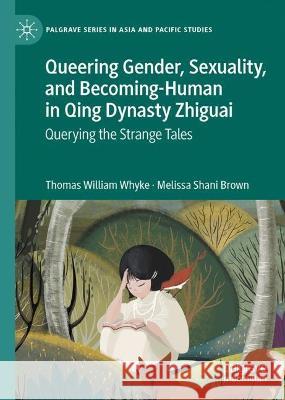Queering Gender, Sexuality, and Becoming-Human in Qing Dynasty Zhiguai » książka
topmenu
Queering Gender, Sexuality, and Becoming-Human in Qing Dynasty Zhiguai
ISBN-13: 9789819942572 / Angielski / Twarda / 2023
Queering Gender, Sexuality, and Becoming-Human in Qing Dynasty Zhiguai
ISBN-13: 9789819942572 / Angielski / Twarda / 2023
cena 441,75
(netto: 420,71 VAT: 5%)
Najniższa cena z 30 dni: 424,07
(netto: 420,71 VAT: 5%)
Najniższa cena z 30 dni: 424,07
Termin realizacji zamówienia:
ok. 22 dni roboczych.
ok. 22 dni roboczych.
Darmowa dostawa!
This book offers queer readings of Chinese Qing Dynasty zhiguai, ‘strange tales’, a genre featuring supernatural characters and events. In a unique approach interweaving Chinese philosophies alongside critical theories, this book explores tales which speak to contemporary debates around identity and power. Depictions of porous boundaries between humans and animals, transformations between genders, diverse sexualities, and contextually unusual masculinities and femininities, lend such tales to queer readings. Unlike previous scholarship on characters as allegorical figures or stories as morality tales, this book draws on queer theory, animal studies, feminism, and Deleuzian philosophy, to explore the ‘strange’ and its potential for social critique. Examining such tales enriches the scope of historic queer world literatures, offering culturally situated stories of relationships, desires, and ways of being, that both speak to and challenge contemporary debates.











